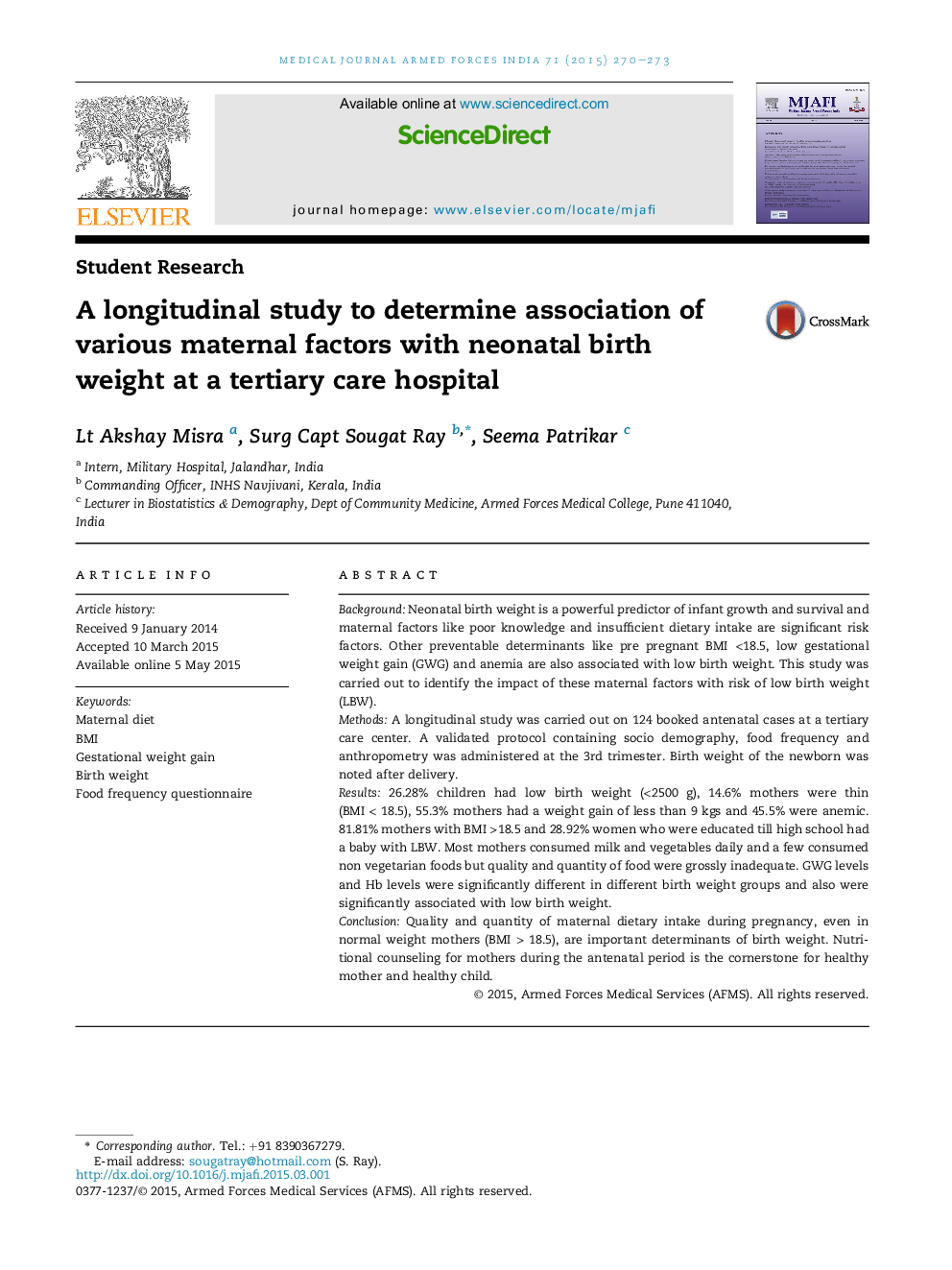| Article ID | Journal | Published Year | Pages | File Type |
|---|---|---|---|---|
| 3160943 | Medical Journal Armed Forces India | 2015 | 4 Pages |
BackgroundNeonatal birth weight is a powerful predictor of infant growth and survival and maternal factors like poor knowledge and insufficient dietary intake are significant risk factors. Other preventable determinants like pre pregnant BMI <18.5, low gestational weight gain (GWG) and anemia are also associated with low birth weight. This study was carried out to identify the impact of these maternal factors with risk of low birth weight (LBW).MethodsA longitudinal study was carried out on 124 booked antenatal cases at a tertiary care center. A validated protocol containing socio demography, food frequency and anthropometry was administered at the 3rd trimester. Birth weight of the newborn was noted after delivery.Results26.28% children had low birth weight (<2500 g), 14.6% mothers were thin (BMI < 18.5), 55.3% mothers had a weight gain of less than 9 kgs and 45.5% were anemic. 81.81% mothers with BMI >18.5 and 28.92% women who were educated till high school had a baby with LBW. Most mothers consumed milk and vegetables daily and a few consumed non vegetarian foods but quality and quantity of food were grossly inadequate. GWG levels and Hb levels were significantly different in different birth weight groups and also were significantly associated with low birth weight.ConclusionQuality and quantity of maternal dietary intake during pregnancy, even in normal weight mothers (BMI > 18.5), are important determinants of birth weight. Nutritional counseling for mothers during the antenatal period is the cornerstone for healthy mother and healthy child.
